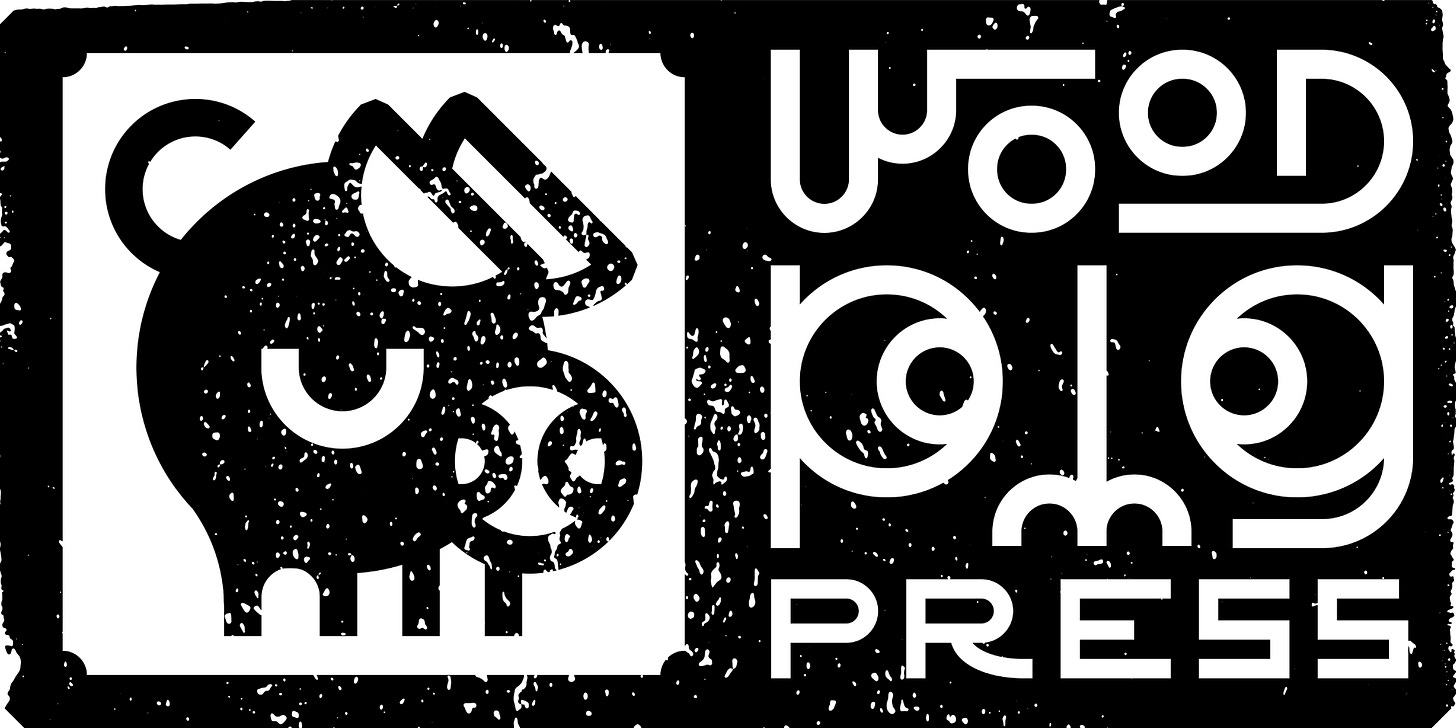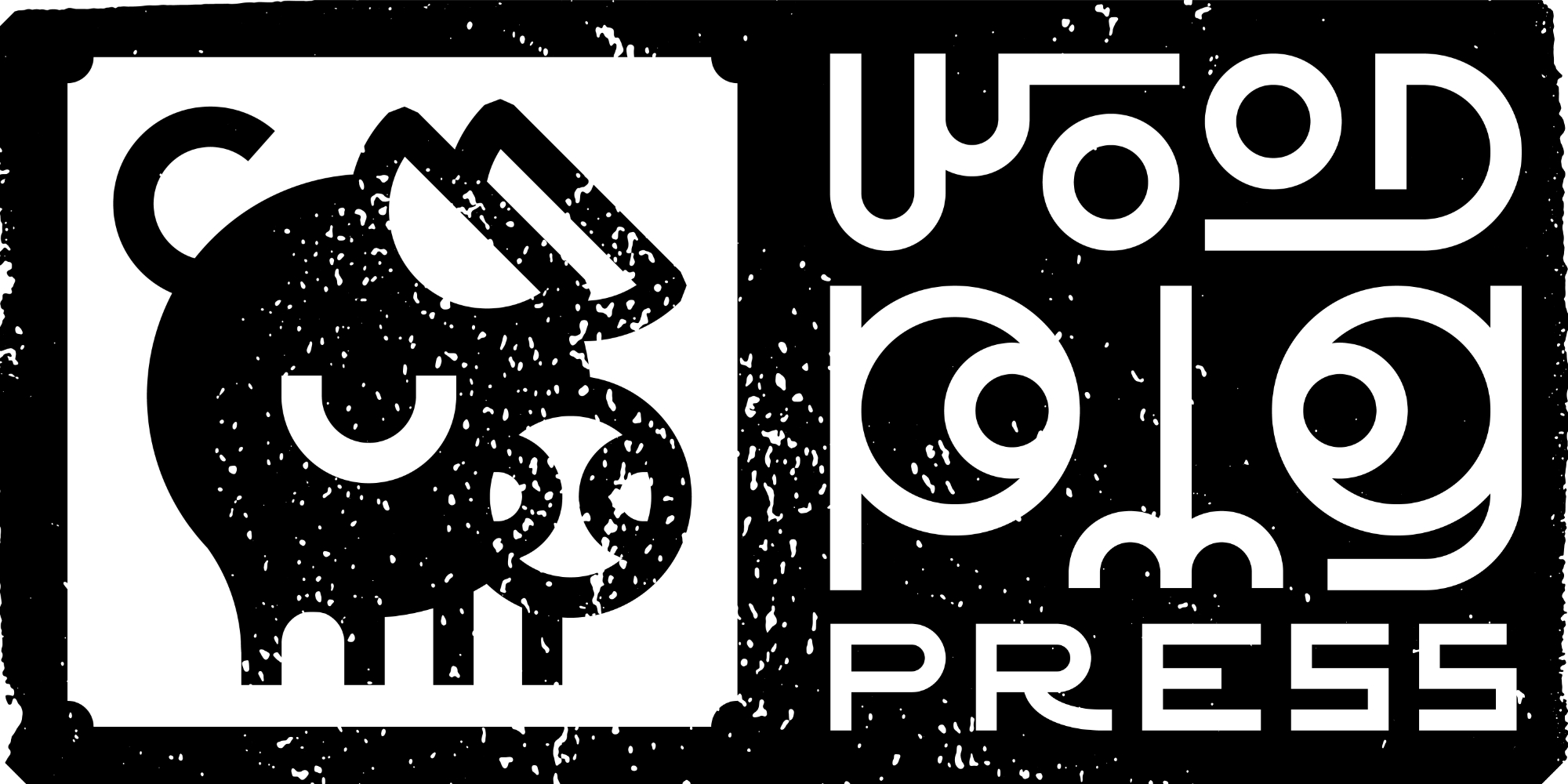
Diary of a Micro-Press, Week 6 – in which I talk to Watermark Press’s Alan Bilton
This week I’ve been chatting to Alan Bilton, who helps run Watermark Press, a Swansea-based small press specialising in innovative literary fiction. Alan is himself an author, and also a lecturer at Swansea University, where he teaches on the creative writing PhD.
Watermark Press has been going since around 2020, and at its core are a group of alumni from the creative writing course. It runs on a sort of hybrid/co-op model: each of the authors it publishes shares in the costs of book production, website fees, etc, and they split what profits are left. Since it’s a collective, there are no unsolicited submissions to wade through, no author contracts to deal with, and no author’s advance to fund (which is a rare thing in indie publishing anyway). They edit and proofread each other’s work in-house, and only pay externally for cover design and formatting, which are farmed out to certain trusted freelancers. Books are printed with Imprint Digital in Exeter, and each title is funded by the Books Council of Wales.
We chatted a little about the benefits and challenges of publishing with BCW, and these seem to be similar to those I identified in last week’s post: margins are tight, requiring a higher than average retail price in order to make a profit; and aside from notifying distributors and retailers as to their availability, BCW doesn’t market the books, which is left to the publisher.1 This is to be offset against the positives: BCW are extremely helpful and knowledgeable, and greatly encouraging to small presses; the grant money is sizeable enough to help fund good quality book production; and their distribution process makes books available to a wide range of retailers and indie bookshops.
As with WoodPig Press, Watermark sells directly through its website, and Alan confirmed something I’ve also found – that it’s difficult to make sales in this way as people prefer to buy from big outlets (Waterstones) or online (Amazon). So, it also pays to be available through both of these. However, in practice, he’s found it hard to get books placed in retail chains and with big distributors, who tend to request a lot of stock – so, for example, a thousand copies, as opposed to 50 or 100. This is obviously a considerable investment for a small press, not to mention risky, which means that take-up through these channels has been limited. There is also the question of the visibility of BCW titles outside of Wales: do English, Scottish and Irish bookshops browse their catalogue? But this comes back to the importance of marketing, which BCW doesn’t directly engage with, and the key thing here is that its distribution channels do make the books widely available (in theory) to non-Welsh retailers.
Alan said he’d also experienced difficulties with making the books available through Amazon, a story I’d heard from other authors who have chosen not to publish directly through KDP, and as a consequence saw their titles listed on the website with long delivery times or stock availability issues (which – the cynical part of me wonders – may be problems that Amazon is not greatly motivated to fix).
One thing I was interested to discuss was the question of incorporation: is it necessary for a small press to be a limited company? Watermark is, but this springs mainly from the fact that one of their number knows a tame lawyer, who kindly sorted all that side of things. For WoodPig Press, however, I still think a sole-trader model could work, and it would definitely be less hassle. Let’s see.
Watermark Press doesn’t do Amazon or Facebook ads, and is more committed to traditional means of promotion (public readings and launch events, festival appearances, establishing links with creative writing groups and programmes, etc). This is at least partly by choice; funds aside, Alan knows first hand how easy it is to throw money at things that have hard-to-measure returns, or where those returns are outweighed by the investment (his previous publisher spent a lot of money on ads and promotion, sending out ARCs, etc, to little purpose). Indeed, if there’s a key lesson that I’ve learnt so far in my publishing adventures, it’s that the cost of visibility is high and getting higher.
In terms of small-press strategy, Alan advised me to keep initial print runs low, as it’s cheaper to order a later reprint if needed than to print an optimistic number at the outset (which is a good point). Sales through this model are modest – as they are with many small presses, I would assume – but those presses which do best have succeeded in mining a niche (e.g. poetry, local history, fringe genres). We agreed that a “farmer’s market” approach is something that we’d both like to see in small press publishing: where higher cost is justified by higher quality, greater diversity and uniqueness.
It was great chatting to Alan, and we’ve promised to try to help each other going forward. The co-op/hybrid model is interesting, though not something that lends itself to accepting broad submissions – which I would like to do.
It’s also interesting to compare Alan’s approach with that of crime writer Dylan Jones (interviewed in Week 3), where you can clearly see the divide between two standard approaches: the literary press, favouring print2 and traditional marketing methods, versus the digital bias of the genre-focused writer, heavily reliant upon online ads and marketing.
However, I don’t think the divide need be as stark as this, and there’s certainly the opportunity to emulate the best practices of both approaches. In-person promotion and events, quality print editions, etc, are important in cultivating the sort of bespoke, artisanal vibe that I’d like WoodPig Press to embody, but this need not exclude taking advantage of the low overheads and reader convenience that digital media affords. As for marketing, both its potentials and pitfalls, that’s a post for another week.
Thanks to Alan Bilton for a very entertaining and informative exchange, and for his generosity in making the time to chat.
